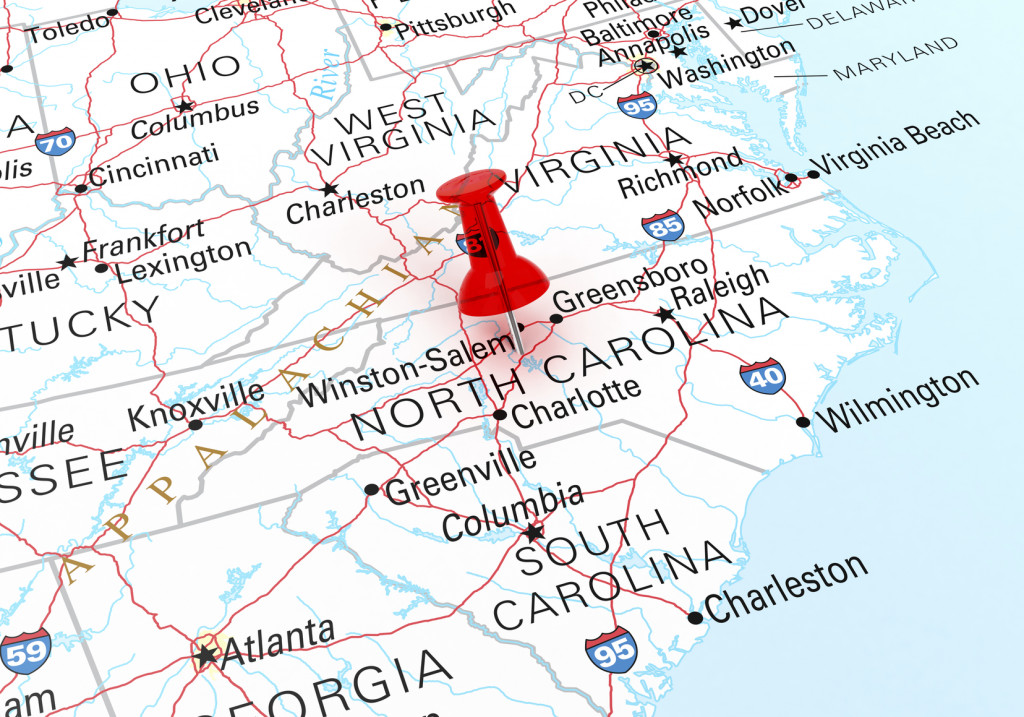This article is an excerpt from GovLoop’s guide titled “Analytics Now: Effective Use of Government Data Today.” Download the full guide here.
Part of North Carolina’s Department of Information Technology, the Government Data Analytics Center (GDAC) works with individual agencies and creates statewide strategies to drive data-based decision-making.
To better understand state data, GDAC created the Data Asset Catalog Service to collect business and technical metadata about the state’s critical data assets.
GovLoop recently spoke with John Correllus, Deputy State Chief Information Officer and Chief Data Officer, to learn how the state is embracing analytics to become more effective and efficient.
GOVLOOP: How did the center come to be?
CORRELLUS: It’s been around for about 10 years under different names. It really started out in the State Controller’s Office. They had done a statewide data integration plan, and that really showed how we could be better leveraging our data. Shortly after they had done the plan, there were a couple of high-profile murders in the state of college students. It showed an opportunity to leverage that plan and put it to use by integrating offender data. That became what is now known as [Criminal Justice Law Enforcement Data Services], which is a criminal justice, law enforcement automated data system. It started off as a pilot and grew and expanded to integrating a significant amount of offender data. I think it’s about 16 sources right now and over 25,000 criminal professionals are leveraging that system in the state today. So, when you think about that, that was a real business issue.
GOVLOOP: What does GDAC do today?
CORRELLUS: July 2014 is when GDAC transitioned from the controller’s office to the state CIO’s office, which is now called the Department of Information Technology. It was doing more point solutions at that point. When it moved over to the state CIO’s office, it really became more of an enterprise program and it expanded exponentially. Today we have over 30 programs and projects. We have healthcare initiatives, child safety, more criminal justice, longitudinal data management, transparency, performance — just a whole slew of things, and it’s really been based on the success of starting small but thinking enterprise and extending all these services and growing these services as we see value.
GOVLOOP: GDAC has a master data management plan to document North Carolina’s data sources, definitions and quality issues. Can you elaborate on that?
CORRELLUS: We did an enterprise data management strategy and implementation plan that we completed late last fall. That provided us some recommendations and assessment of the enterprise data needs. One recommendation was we need to understand our data better, so we are working on what’s called a Data Asset Catalog Service (DACS). This is where we’re collecting business and technical metadata about the state’s critical data assets, working with the state’s agencies and partnerships.
We are working with our Department of Motor Vehicles, Department of Commerce and other agencies that have signed agreements to collaboratively work with us to make sure that we have cataloged those assets because the data is really valuable, and whenever you want to do a data analytics effort, you need to understand what the data is, how it was produced and how it can be utilized. DACS is really the inventory; it’s not a one-time deal working with our agency partners. That’s happening today. That’s implemented. That was one thing that came out of that enterprise data management plan. The other was around what I would call data-as-a-service. We have a lot of point-to-point data connections. We can do a much better job from an enterprise perspective if we take a data-as-a-service approach and develop APIs and have a platform to deliver those APIs. We’re looking to implement that early 2019.
GOVLOOP: How does this lay a foundation for data analytics?
CORRELLUS: We all want to talk about data analytics, but the foundation for the future is knowing your data. So, if we approach a data analytics problem or a business problem that we think data analytics will help us with, most of the time is spent understanding the data, doing exploratory data analysis on that data. It’s not creating the analytics. The foundation is you need to know the data and how it can be used. That’s just absolutely critical.
GOVLOOP: How does analytics make the state more effective and efficient?
CORRELLUS: How we’re using data analytics is just about improving services and outcomes. When you think about a government entity, the reason they have data is to hopefully confirm how well services are being delivered and what some of those options are. Leaders have made significant investments in data analytics, and the whole reason is they see it as valuable in making more informed or evidence-based policy decisions, so it’s not just based on what you think you know, but what you can prove you know. When you think about the Legislature, the governor, the secretaries and the organizations, they’re responsible for ensuring good government services to citizens. Leveraging the data, measuring the data, improving outcomes, making decisions based on evidence, not based on gut feel is important.
